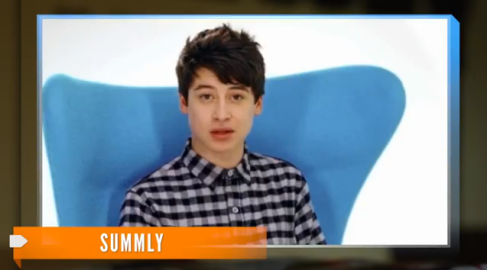The 17-year-old from Wimbledon, South London, is the founder of Summly, an app that summarises news stories from media websites. Yesterday he announced that he had sold the start-up to Yahoo!, turning him into one of the world’s youngest self-made multimillionaires.
Though the two sides have not disclosed the terms of the deal, the acquisition is thought to be worth about $30million. But Mr D’Aloisio does not feel ready to spend his fortune. “It’s in a trust fund,” he said. “I’m not thinking about the money. That wasn’t my motivation. With the deal, it was about what’s the best company to take Summly to the next level. I think that’s Yahoo!”
Summly condenses long webpages into text bullet points, which can be read easily on phones. The company’s huge valuation comes despite its small size. The free app has been downloaded about one million times, a relatively low number compared with other bestsellers. Summly has a staff of about five but has no way of making money.
But Mr D’Aloisio has built his start-up like a veteran. A student at King’s College School in Wimbledon, he had to ask teachers last year to delay his mock GCSE exams to travel to California to seek investors. He secured more than $1.4 million funding, picking up prominent backers such as Li Ka-shing, one of the world’s richest men, the actors Ashton Kutcher and Stephen Fry and, in Silicon Valley, Mark Pincus, of Zynga, and Brian Chesky, of Airbnb.
The investment allowed Summly to create a more sophisticated app; the company had deals with about 250 online publishers, including News Corporation, parent company of The Times and The Australian.
Mr D’Aloisio toured television studios yesterday. He said that he had been inspired to create Summly aged 15 while studying for history exams, seeking a better way to absorb large amounts of information. The only moment he betrayed nervousness was in contemplating his fame. “I realised that when we became one of the trending topics on Twitter today,” he said. “If anything comes of this, I just want to see more young entrepreneurs.”
Mr D’Aloisio is studying for his A levels and hopes to go to university. He lives with his father, Lou Montilla, who works at Morgan Stanley, and mother, Diana D’Aloisio, a lawyer. “I’d like to do another company in the future,” he said. “But for now, I want to take Yahoo!’s content and make it really beautiful and great.”
He does have one new purchase in mind. “It’s a bit of a esoteric one, but I want a shoulder bag,” he said. “It’s more that I’ve not had time to buy one yet. It’s been a hectic week.”
The Times


